
18 minute read
NEWS
AN EDA MOVIE NIGHT WITH VOX CINEMAS ZAYED’S ANTARCTIC LIGHTS
EDA and VOX Cinemas, Mercato Mall teamed up for the final EDA Movie Screening of 2019 on Wednesday, 13th of November with the Environment Agency - Abu Dhabi and the Jane Goodall Institute’s award winning documentary, ‘Zayed’s Antarctic Lights’.
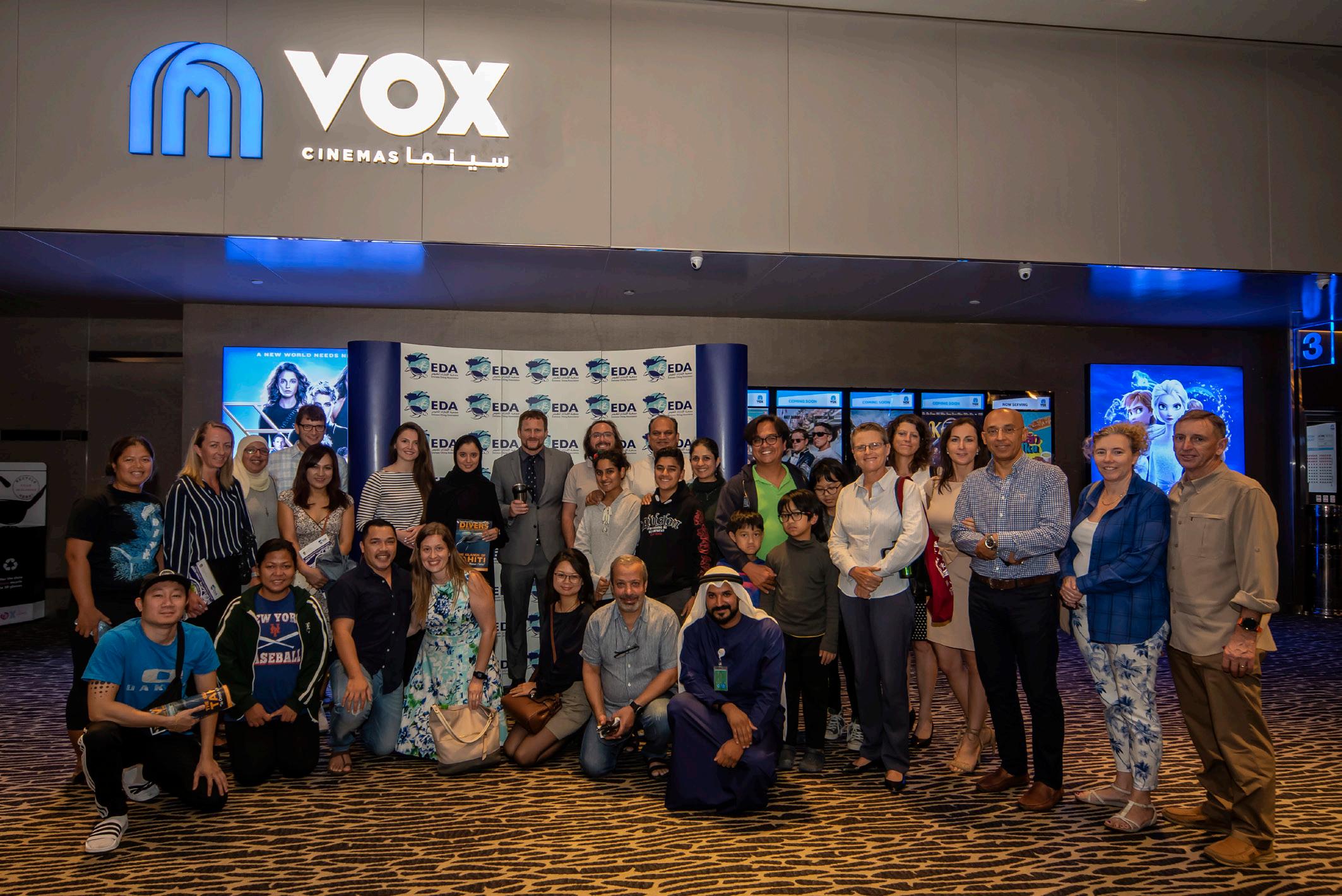
A big thank you to Team Zayed’s Winston Cowie, and Team Tolerance’s Humaid Al Khanji for joining us from Abu Dhabi to do a Q&A with our members.
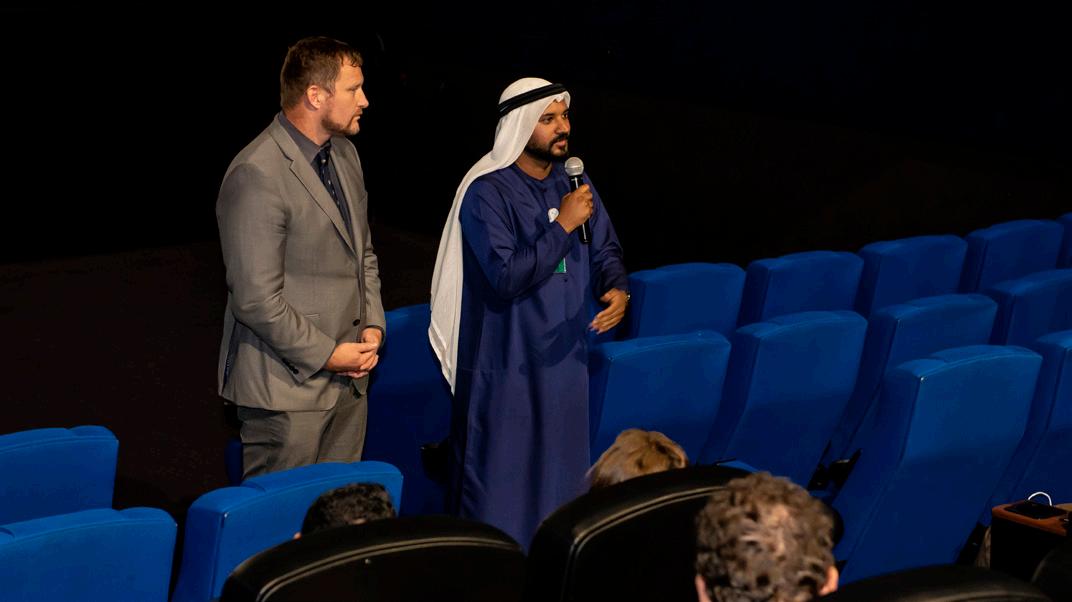
Winston Cowie and Humaid Al Khanji
FILM SYNOPSIS
Zayed's Antarctic Lights is a documentary that chronicled a two-week expedition to Antarctica by three EAD staff members as they witnessed and studied first-hand the impact of global warming and climate change. The journey was part of the Climate Force International Antarctic Expedition led by Sir Rober t Swan, the first explorer to walk to the North and South poles.
The UAE is one of the countries vulnerable to the effects of climate change. With nearly 1,300 kilometres of coastline, it is imperative that the UAE undertakes collaborative efforts to mitigate the risks of rising sea levels.
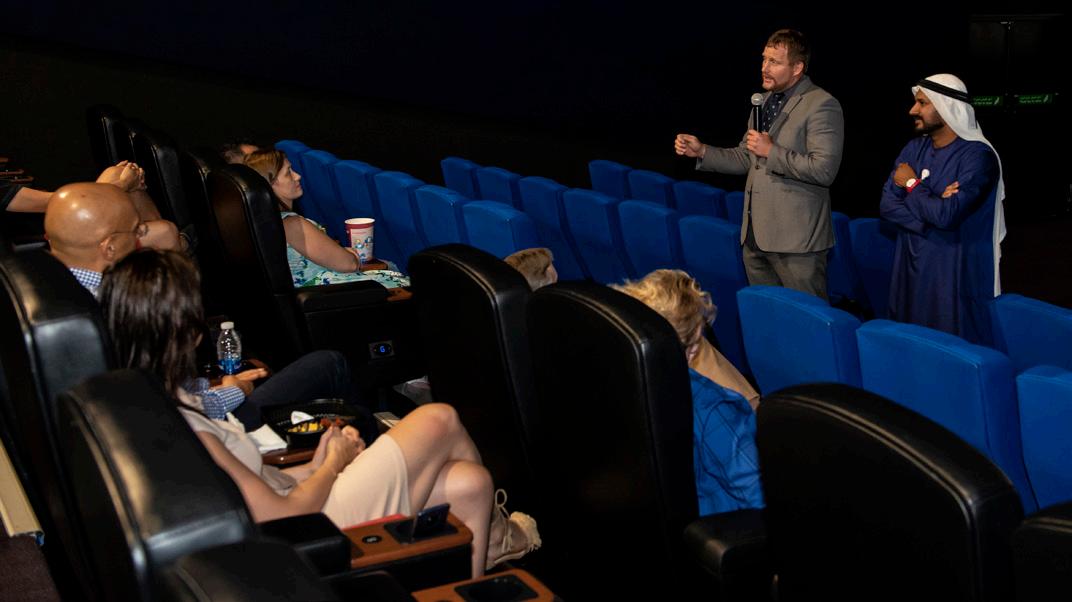
The film features Rashed Al Zambia, a mammalogist at EAD, Mariam Al Qassimi, Communication Specialist at EAD and the UAE Co-ordinator of Jane Goodall’s Roots and Shoots programme; and Winston Cowie, the Agency’s Marine Policy Manager – who are part of EAD’s ‘Team Zayed’ – as part of the Climate Force International Antarctic Expedition led by Sir Robert Swan.
During their expedition, ‘Team Zayed’ lit up the Antarctic sky with 100 solar lights, sending a message of unity, hope and action on climate change to mark the Year of Zayed and celebrate the living legacy of the UAE founding father’s environmental stewardship. Each light represented a pledge of commitment to engage in community initiatives that will tackle climate change and global warming.
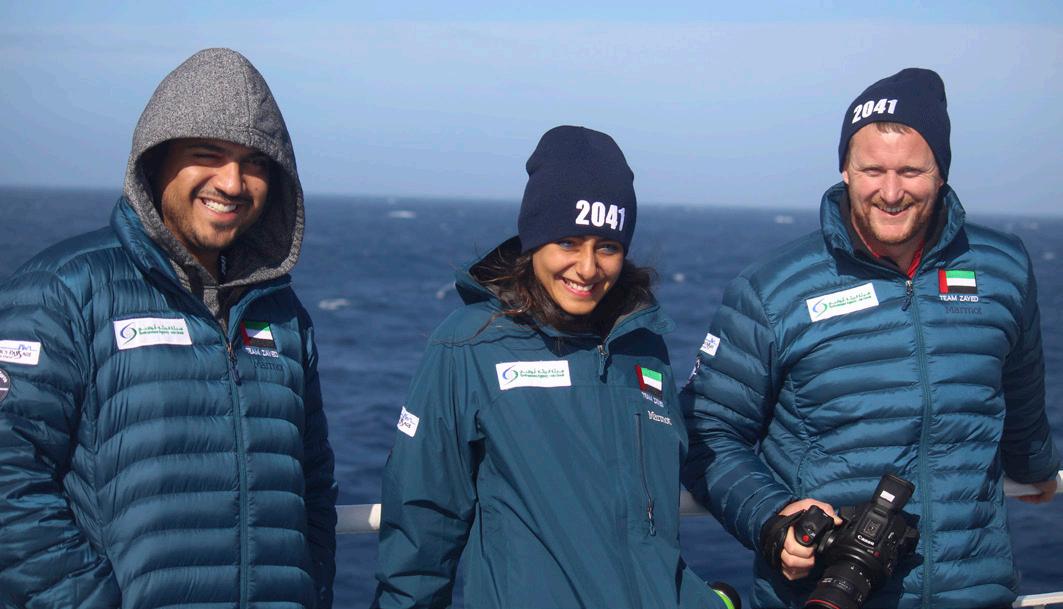
Rashed Al Zambia, Mariam Al Qassimi and Winston Cowie


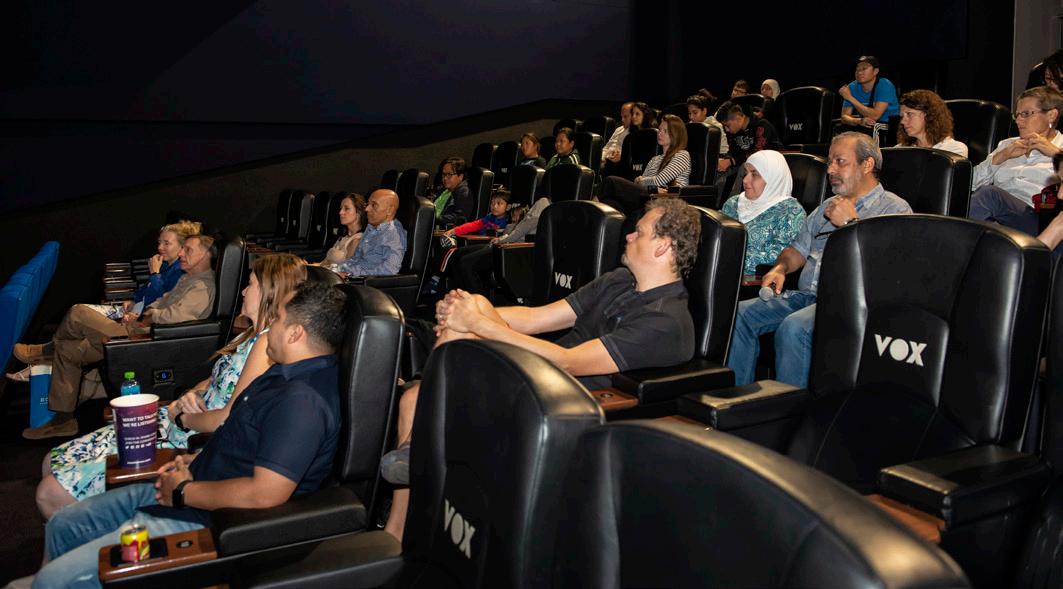
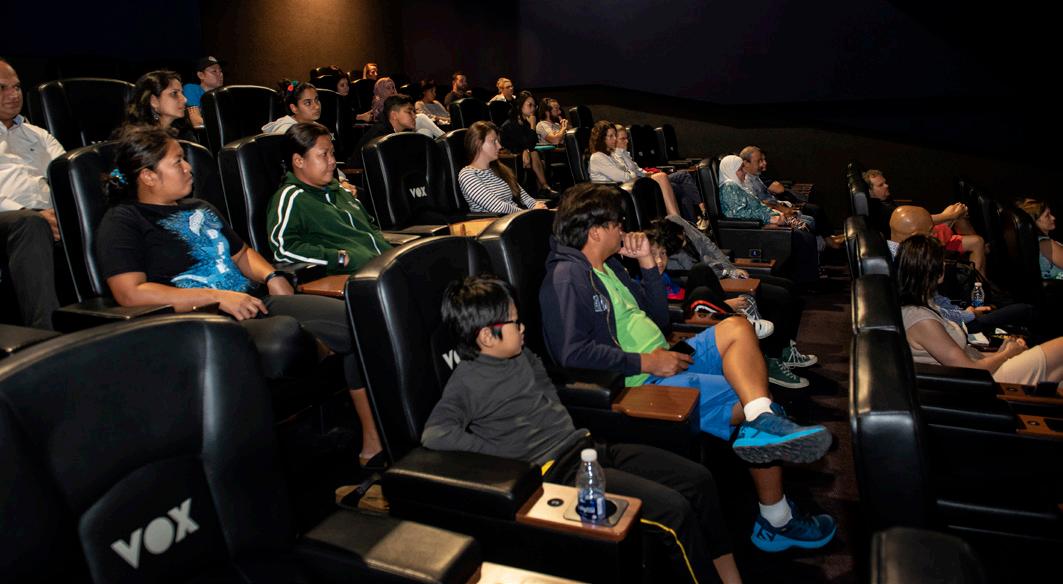
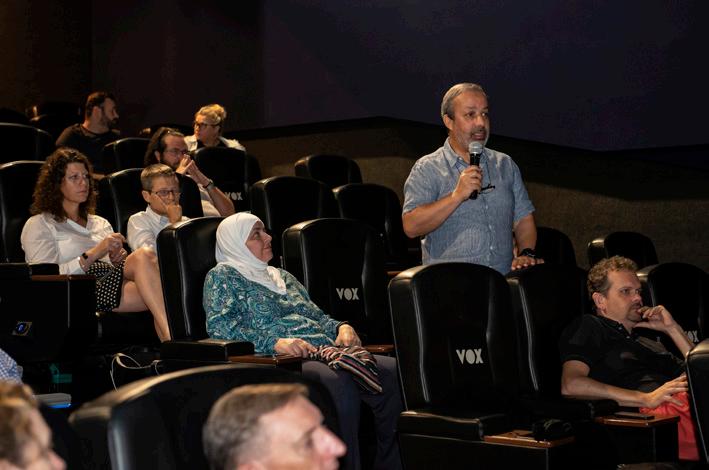
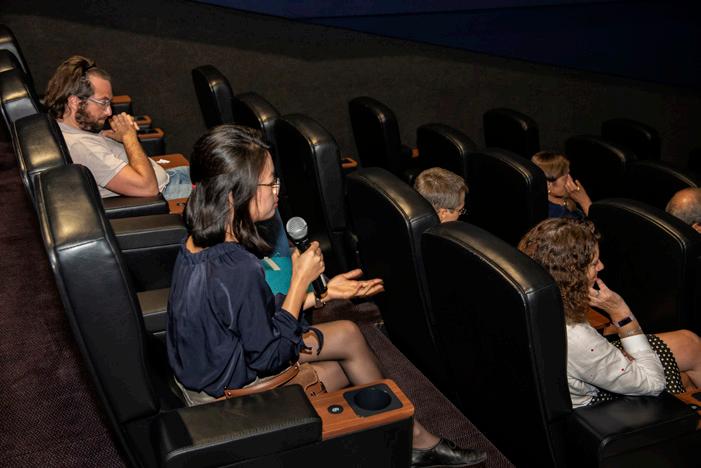



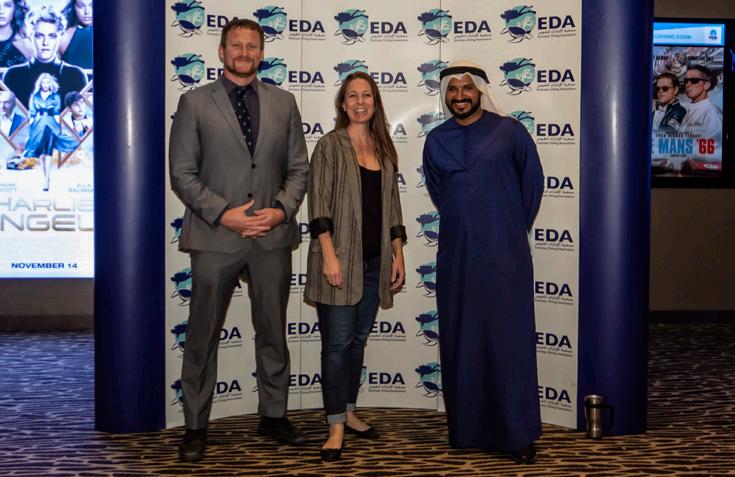
BOSTON CONSULTING GROUP BEACH CLEAN-UP AL ZORAH BEACH, AJMAN PHOTOGRAPHY ALLY LANDES
The clean-up season was officially opened for business in October with another very successful beach clean-up with Boston Consulting Group (BCG), 3 years running as part of their driving force for inspiring corporate purpose that maximizes both social and economic value.
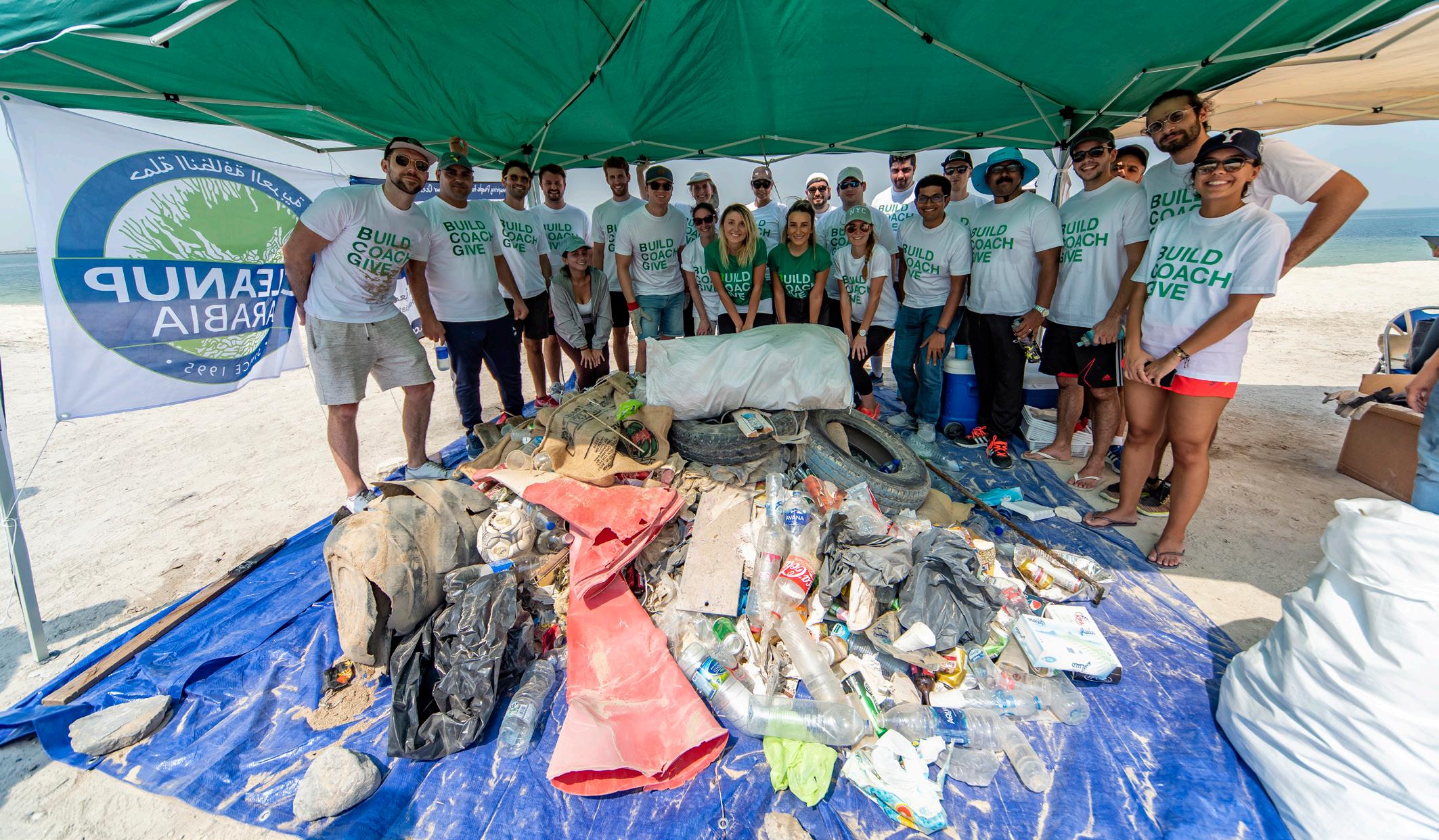
On the 3rd of October, the BCG team managed to collect a whopping 204.5 kg of debris with 4,841 items collected from the Al Zohra Beach of Ajman with the support from the Ajman Government and Municipality.

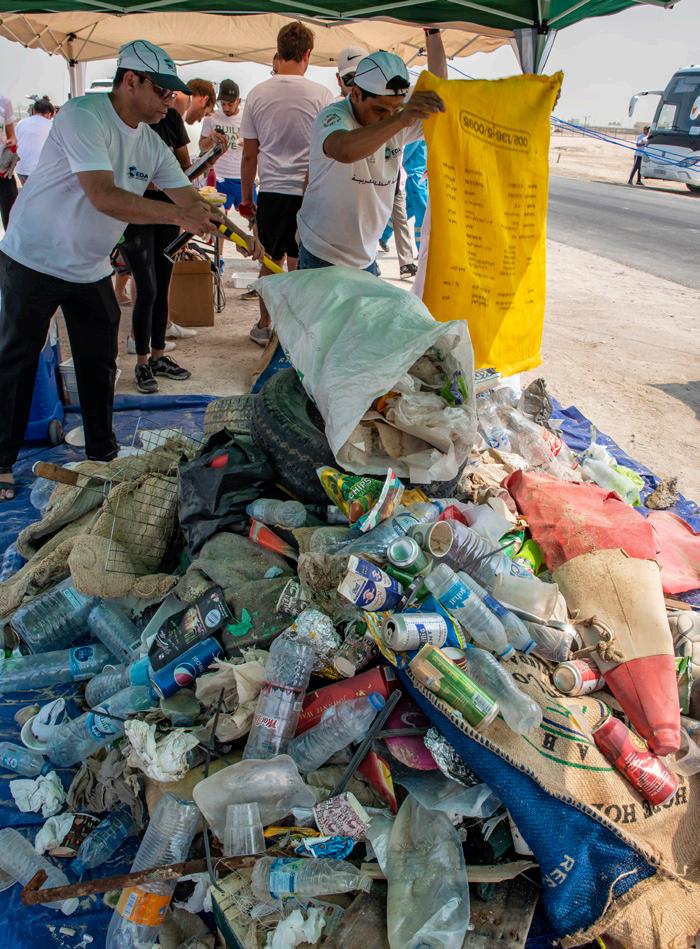
We are now using burlap coffee sacks for our ‘Cleanup Arabia’ beach clean-ups donated to us by Nightjar Coffee Roasters LLC. Once each bag is filled and weighed, it is emptied out onto our tarpaulin matt so that at the end of the clean-up, the volunteers can team up and count each item collected and record them onto the International Coastal Cleanup (ICC) forms which we send to the Ocean Conservancy, and the rubbish is transferred to refuse bags the municipalities collect at the end of our events.
A big thank you to BCG for their teamwork and continued efforts given to caring for our environment.
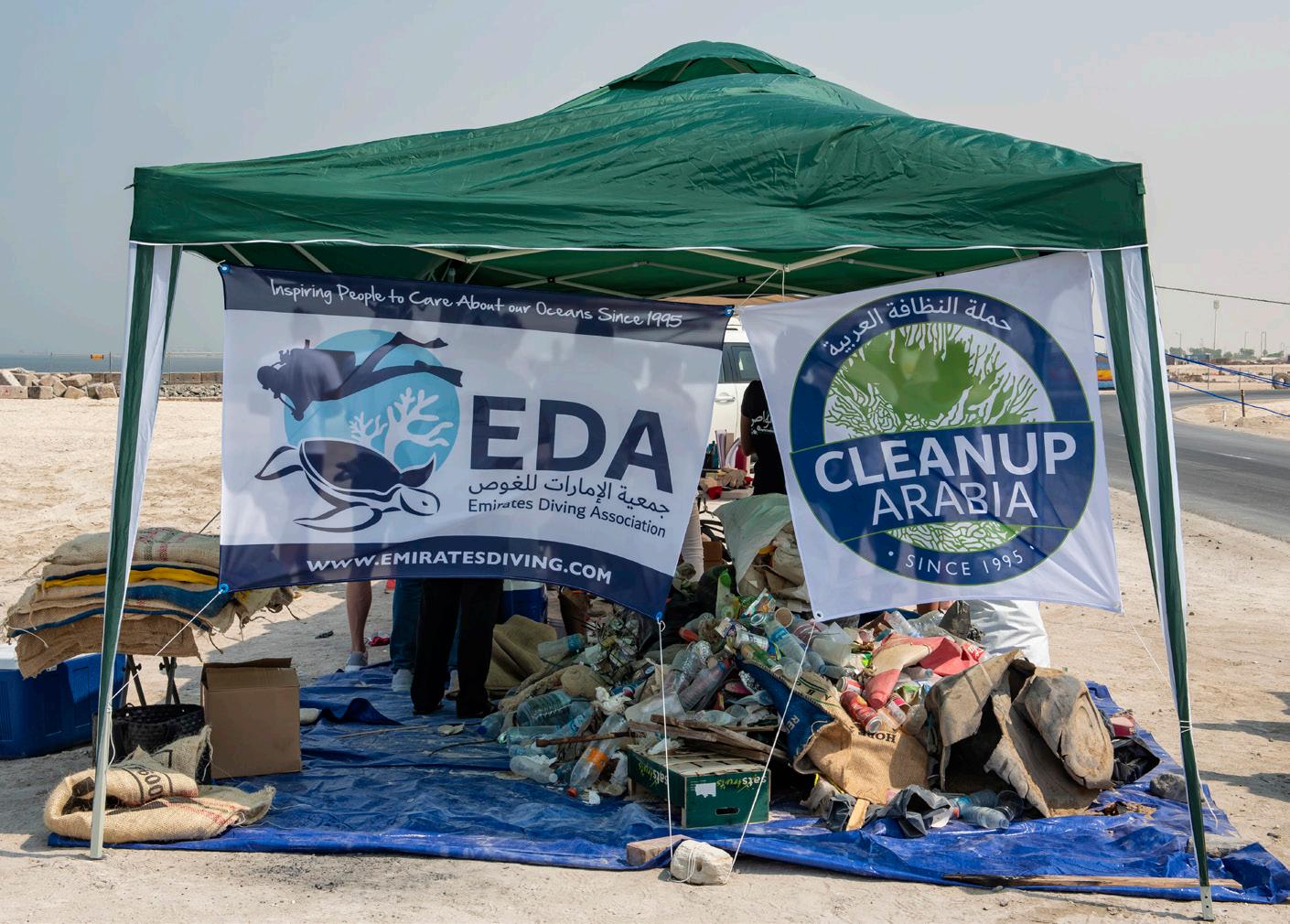


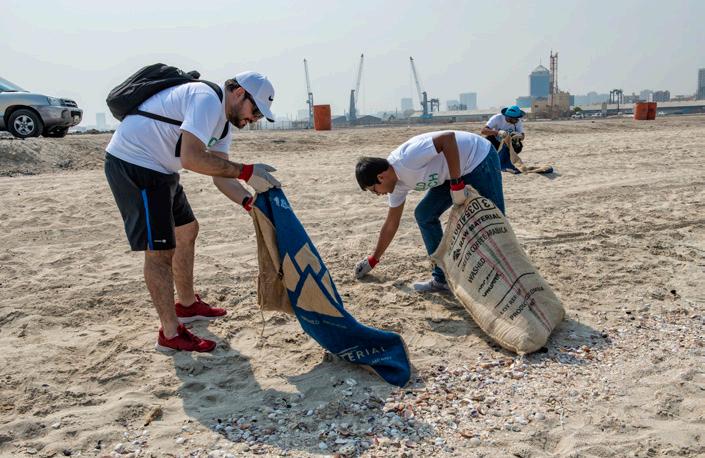
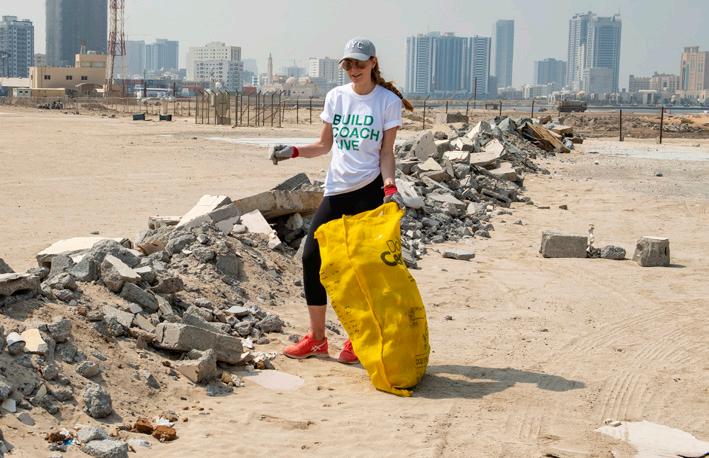
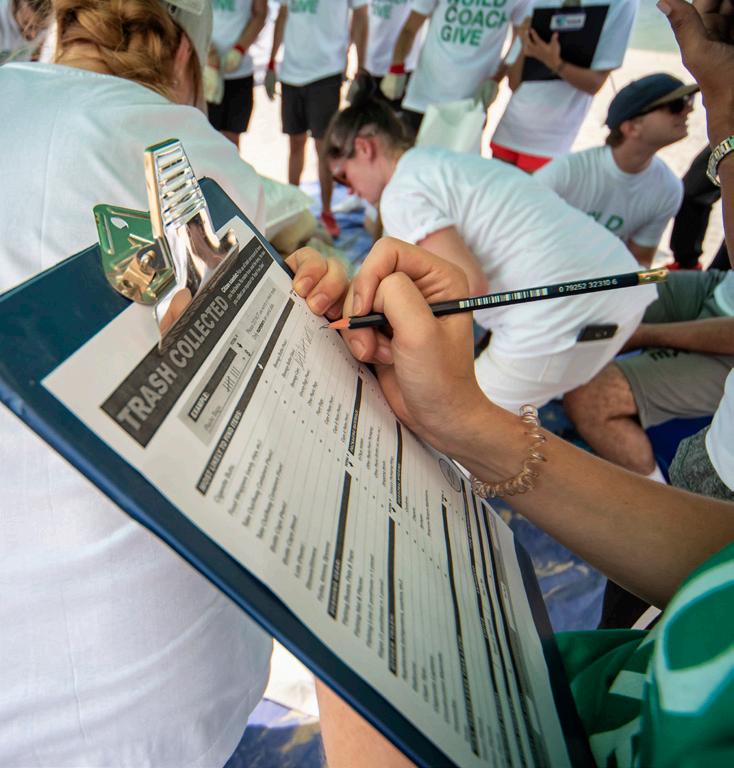
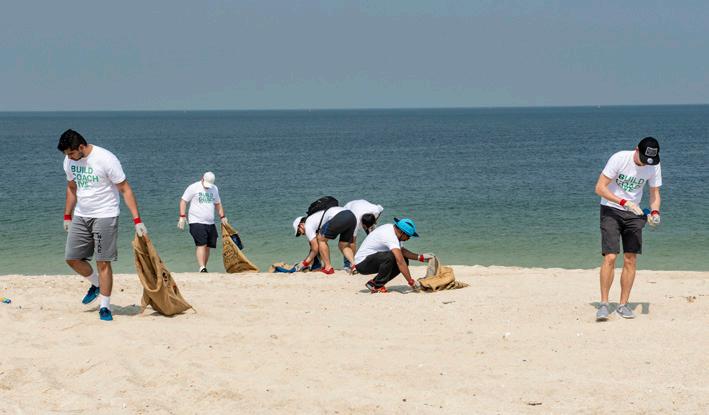

MAJID AL FUTTAIM BEGINS BREAK UP WITH SINGLE USE PLASTICS
DUBAI – 5 th NOVEMBER 2019 Yes, you heard it right. Majid Al Futtaim, the much-loved creator of ‘Great Moments for Everyone Everyday’ has announced its company-wide pledge to phase out single-use plastic by 2025. Starting one country at a time, the company will phase out single use plastic from its operations.

It’s a mammoth task for a multi-national organisation operating 26 malls, 13 hotels, 46 VOX Cinemas and more than 285 Carrefour stores across the Middle East, Africa and Asia. Just last year, Majid Al Futtaim’s shopping malls welcomed 192 million visitors and it is estimated that if each one of those visitors took home just two Carrefour plastic bags, that would total more than two million kilogrammes of plastic waste.
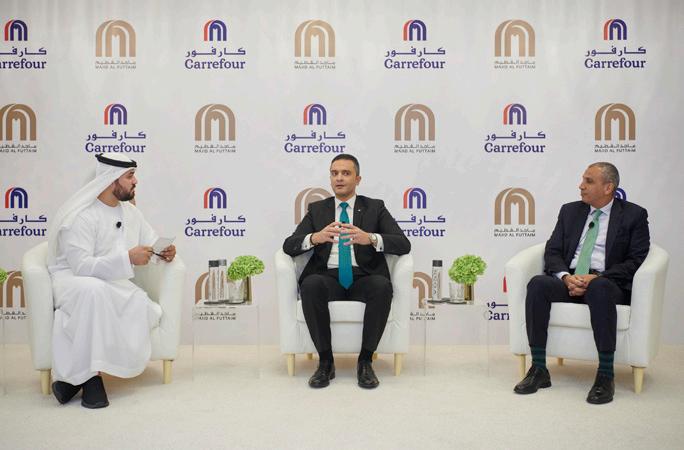
It’s hard to change old habits, so the pledge will help customers reduce their use of plastic by removing freely distributed plastic items from Majid Al Futtaim’s supermarkets, cinemas and hotels.
On-shelf merchandise such as garbage bags, detergent bottles and cleaning products will still be available for customers to purchase.
As part of the new pledge, Carrefour stores will take 500 million plastic grocery bags out of circulation each year – a huge step towards a plastic-free future.
Speaking at the launch of the pledge, Ibrahim Al Zu’bi, Chief Sustainability Officer, Majid Al Futtaim – Holding, said, “Our sustainability journey begins with our mission to deliver truly ‘Great Moments for Everyone Everyday’, and we simply can’t do that at the sake of the environment. For business to be sustainable, it must be in harmony with the planet. I believe we need to continue to push the sustainability agenda at a faster pace, and our customers are very much a part of that. We listen to them, and we want to make it easy for them to make smart choices to live a sustainable life – and hopefully to support brands that are making a real difference in the war on plastic.”
To help customers get started with their best plastic-free life, they are encouraged to sign up for Maijd Al Futtaim’s new lifestyle rewards programme, ‘SHARE’. Each re-usable bag bought between November 6th and 7th will be credited back in ‘SHARE’ points. Plans are also underway to introduce an initiative where customers who shop with their reusable bags will receive even greater ‘SHARE’ rewards. Sounds like the kind of eco-friendly deal everyone loves!
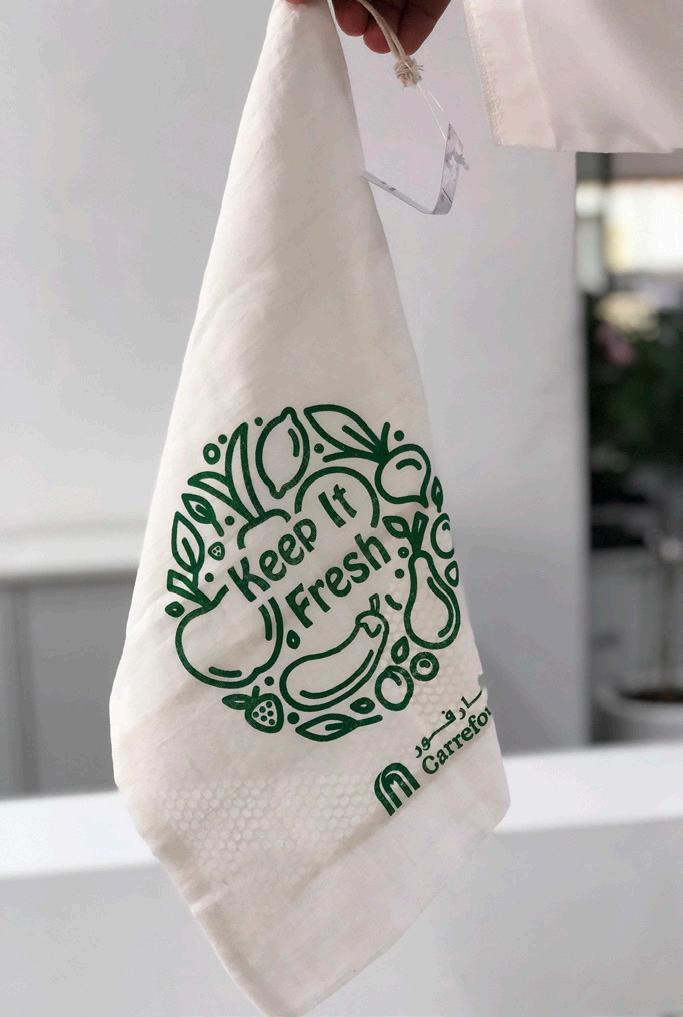
TWO GENERATIONS COLLABORATE TO ADVOCATE ENVIRONMENTAL JUSTICE THROUGH FICTIONAL BOOK ABOUT A PINK DOLPHIN
SHARJAH – 2 nd NOVEMBER 2019 Two UAE-based friends, Rouba Zeidan (44) and Dr. Hamed Abuthina (71) launched an educational children’s book at the Sharjah International Bookfair this week. Titled ‘Boto, the Ocean Environmental Hero’, named after the native Portuguese reference for the dolphin species, the book tells an exciting fictional story based on real life environmental challenges seen through the eyes of Boto, a pink dolphin, originally from the Amazon River in Brazil, and a young boy named Luca. Zeidan and Abuthina set out on this journey over a year ago with the aim of encouraging children to seek to protect their planet and the creatures that live in it.
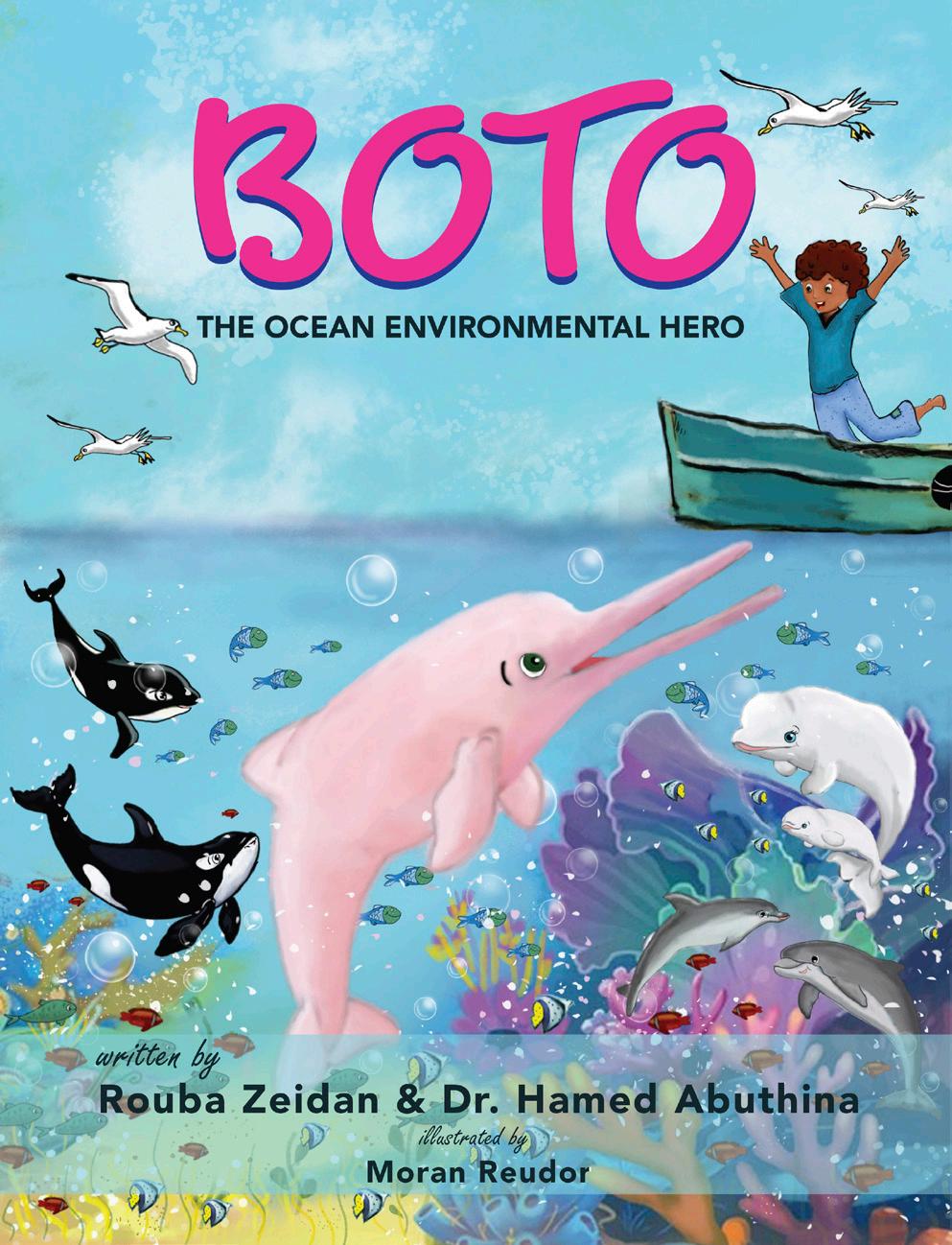
Through storytelling, Zeidan – a corporate reputation consultant, executive coach and jazz & soul singer/songwriter; and Dr. Abuthina – a retired professor of general surgery, use the narrative of the story to raise awareness of the importance of ecological awareness.
They combined their extensive research around the impact of environmental disasters on ocean life with interviews with marine biologists and educators, and their passion for the environment, to create a narrative that blends actual truth with fictional outcomes.
“There were so many causes and so many species we wanted to highlight, and it was really hard to prioritise at first,” says co-author Zeidan.“We finally settled on the areas we jointly felt were urgent which started with helping a child in the UAE or Arab world identify with a character all the way on the other side of the planet. The most important mission of all was to weave our messages into the writing while keeping the characters likeable enough to engage with young minds and help them develop a deeper sense of appreciation for the ocean. Since we wanted to submerge children into the world of the sea and make them fall in love with it, who better to front this story than a smart cotton-candy pink dolphin!”
Zeidan says they tested the narrative of the story on family members and close friends, particularly the children in their lives; her two kids and Dr. Abuthina’s grandkids.
Dr. Abuthina says the inspiration for him came from his fishing trips at sea. “I see fish caught inside plastic bags, junk floating on the water in the middle of the ocean, and most importantly, the carelessness and disregard for nature. Nature can survive without us; we are the ones who need it and must learn to preserve it; the Economic Forum estimates some 8 million tons of plastic is thrown into the ocean each year.
At this rate, by 2050 there will be more plastic in the ocean than there is fish!” he explains.“I believe the next generation has much more empathy for the world around them and I feel compelled to help nurture and encourage them to make better choices than our generations did.”
Following the launch of the English version and the Arabic version, team Boto is set on releasing the book in French and Portuguese in the coming year. “We want to spread the message as wide as possible and use this encounter with these young readers as an opportunity to water the seeds of care in their little hearts and minds.”
Dr. Abuthina hopes Both will be a success and that, “new generations will be inspired to keep their ocean clean and their planet safe; I say ocean in the singular sense because effectively, everything is interconnected and interdependent. Another element which I believe is of extreme importance is overfishing laws. We are for tunate to live in a country that has regulated fishing practices and we commend the UAE for taking such a progressive step in the Middle East, and we hope more countries follow suit to prevent fishing in the wrong seasons. This may be one book in light of the scale and severity of what our Earth is facing, but every step we take towards voicing the message of environmental consciousness gets us one inch closer to possible change.”
BOOK SYNOPSIS
Boto is a special creature with a natural intelligence that far surpasses that of humans. His great adventure begins when he bravely enters the salt water ocean environment after getting caught in a large industrial fishing net with all different sizes of fish, including the youngest ones that should not even be fished. As he attempts to find his way back to his friend Luca back in the Amazon River, he is called up on to save his fellow ocean friends from a series of challenges and problems.
On this journey, he encounters a number of different animals: a sea turtle tangled up in a plastic bag, an Albatross in distress, a pod of orcas swimming past an island of garbage in the middle of the sea, an entire community of animals threatened by toxic pollution, and a Beluga whale whose family is trapped in a huge whale prison.
One rescue mission at a time, Boto empowers and leads his new ocean friends to keep their world safe. His bravery creates a global movement that raises the alarm on environmental justice. His bravery reaches people across the seas and his many stories of triumph inspire many. But.As a freshwater fish in the salty ocean, does Boto ever make it back home to the Amazon, where his friend, Luca, passionately awaits his safe return?
Boto is available in English and Arabic around the world through Amazon, Barnes & Noble, and other online stores. It is available in paperback, hardcover and Kindle edition.
A NEW WORLD OF POSSIBILITIES BY MAJIDAH HASHIM – DIVEHEART VOLUNTEER ADAPTIVE DIVER, PADI DIVEMASTER TRAINEE
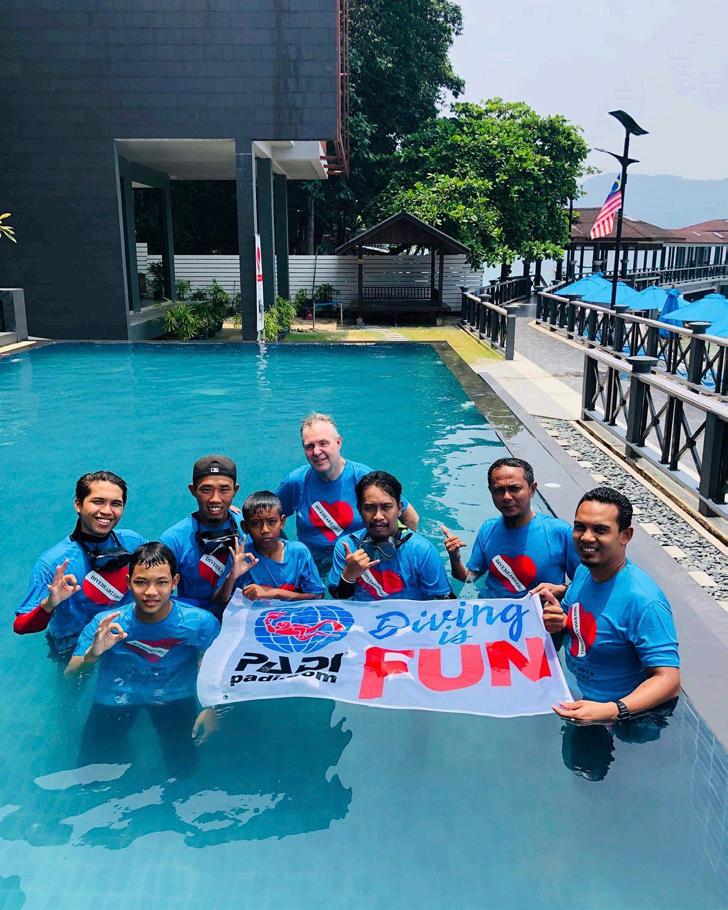

Who says that people who are differentlyabled need to live a life of limitations? The Divehear t Malaysia event, the first of its kind to be hosted by a local private island resort, definitely proved otherwise!
Nestled on the beautiful Perhentian Island Kecil in Terengganu, Mimpi Perhentian Resort was built not only with comfort, but also accessibility in mind – making it the perfect location for the Diveheart event.
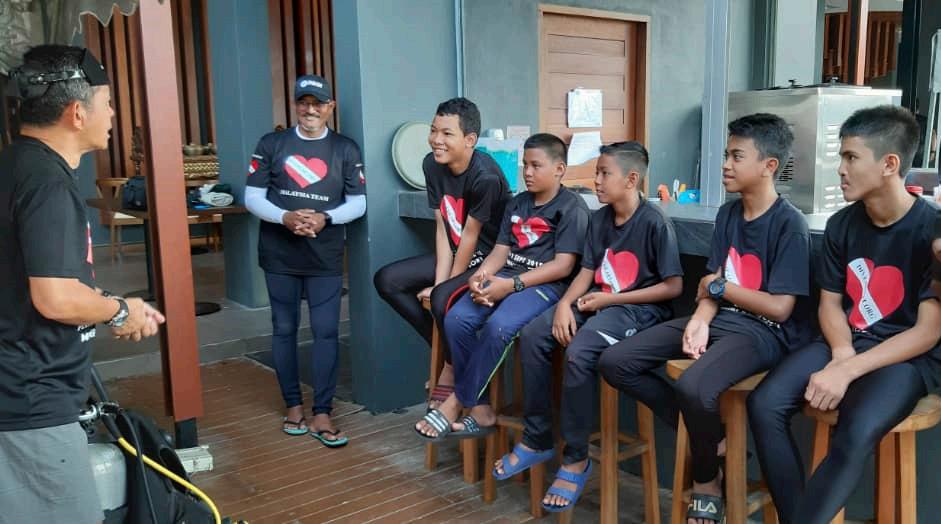
According to Resort Manager Mathew Sangilos, when his team sat down to consider what corporate social responsibility activity to organise this year, it was only natural to play their strengths and to do a dive event. When the idea of reaching out to Sekolah Kebangsaan Pendidikan Khas Kuala Besut came about, the wheels were set in motion for a powerful event set to change the lives of these children forever.
Ten differently-abled children from a Hearing Impaired local school participated in the event which included an introduction to scuba diving, quizzes and various beach related activities. While most of the children appeared shy on the first day when they first arrived at the resort, their shyness quickly disappeared when they got into the water with their adaptive scuba buddies.
The children were exposed to basic scuba diving skills such as breathing through a regulator underwater and finning techniques in Mimpi Perhentian Resort’s pool, before being introduced to a shore dive by the jetty. The difference in the confidence level of the children was like that of day and night, with a definite confidence boost after the exciting dive experience.
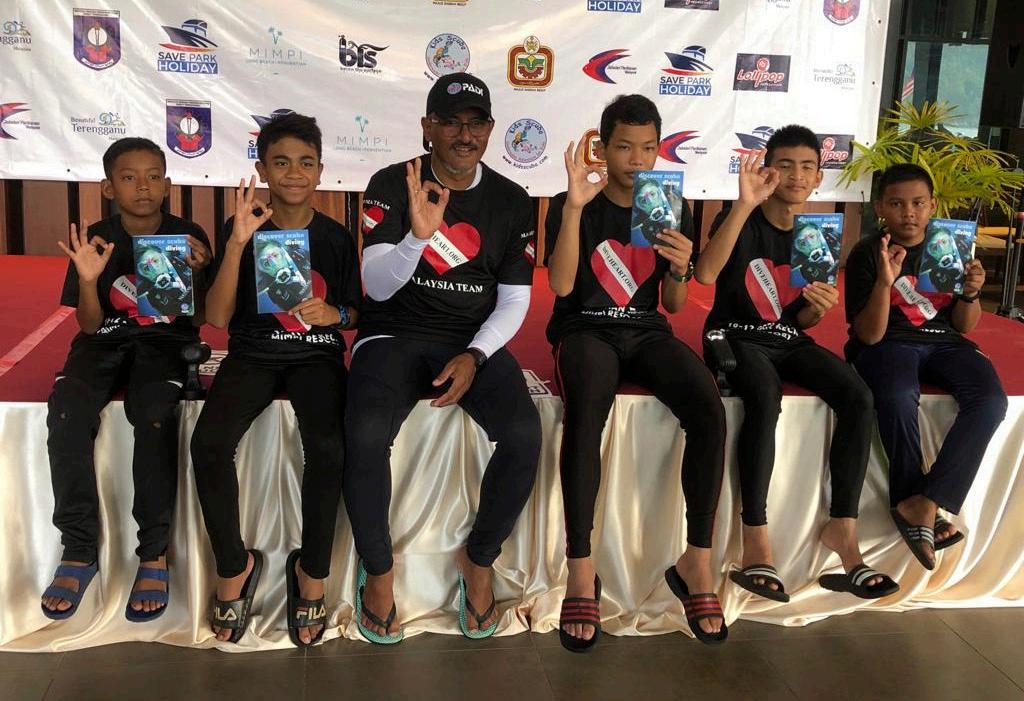
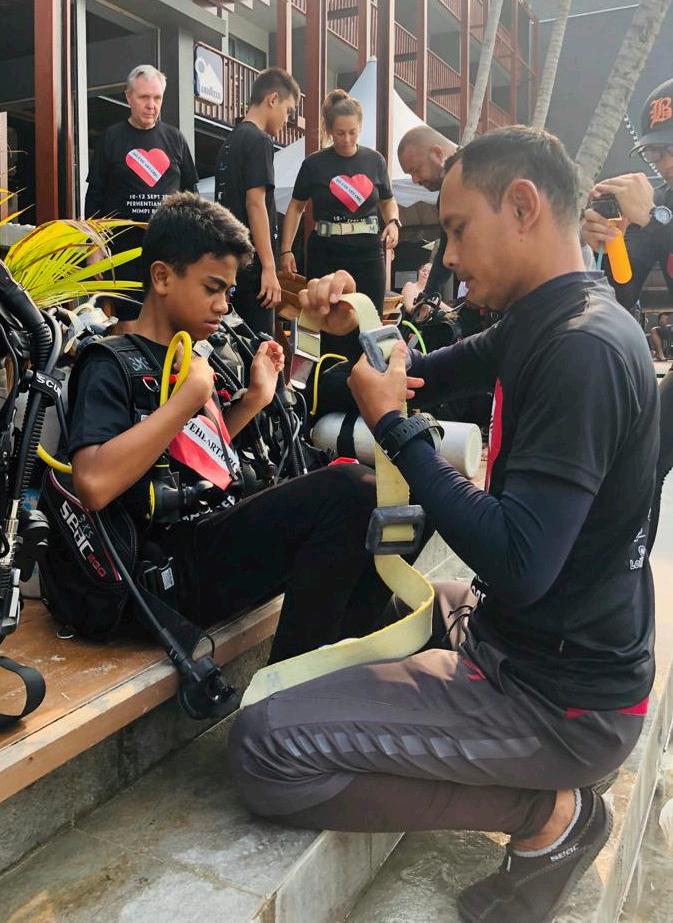
Diveheart is an international non-profit organisation founded in 2001 to provide and support educational scuba diving programmes that are open to differently-abled children, adults and veterans. In opening up the world of scuba diving, Diveheart is on a mission to build confidence, independence and selfesteem through scuba diving, scuba therapy and related activities.
Diveheart Malaysia Ambassador and Kids Scuba Dive Center founder Syed Abdul Rahman Syed Hussain hopes that this event inspires many others to open their doors to this very special community, “I am thrilled to say that events like this does not only build bridges between us, but it also reinforces our hope in humanity.”

The Diveheart Malaysia team spent months training for the event and assembled a diverse team to undertake the responsibility of bringing the experience to the differentlyabled community. They even brought in a ‘specialist’ from the special community. In a heart warming moment that caught everyone in awe, Gary Goh, who is deaf, mute and is a cer tified divemaster with over 3,000 logged dives, expertly explained to the children open water scuba techniques in sign language, proving to them that their disability does not stand in the way of them becoming dive professionals someday!
To bring gender balance to the event, three young differently-abled women were also invited to participate in the event. They are Nooraishah Arshad who is an amputee, Ereen Pasbullah who is visually impaired and Nurul Fathiah who is paraplegic. All three women experienced multiple boat dives where they were exposed to the variety of marine life that Perhentian Island is world famous for.
In a world that tends to take people who are differently-abled for granted and often underestimate their capabilities, it is certainly an amazing sight to see them have an ‘astronaut moment’ underwater.
According to Syed Abdul Rahman, “If all of us of different abilities can respect each other like this today, then we can really ‘imagine the possibilities’ for a better tomorrow.”
WHALE SHARKS ON THE MOVE IN SOUTHEAST ASIA BETWEEN THE PHILIPPINES, MALAYSIA AND INDONESIA HIGHLIGHT THE NEED FOR FURTHER COLLABORATION IN THE CONSERVATION OF THE SPECIES FEATURE SALLY SNOW PHOTOGRAPHY GONZALO ARAUJO
Whale sharks are known to travel between locations to feed on a variety of prey, but up until now connectivity within Southeast Asia was limited. Researchers from the Large Marine Vertebrates Research Institute Philippines have tracked whale sharks moving between the Philippines, Malaysia, and Indonesia for the first time using satellite tags, photo-identification and citizen science.
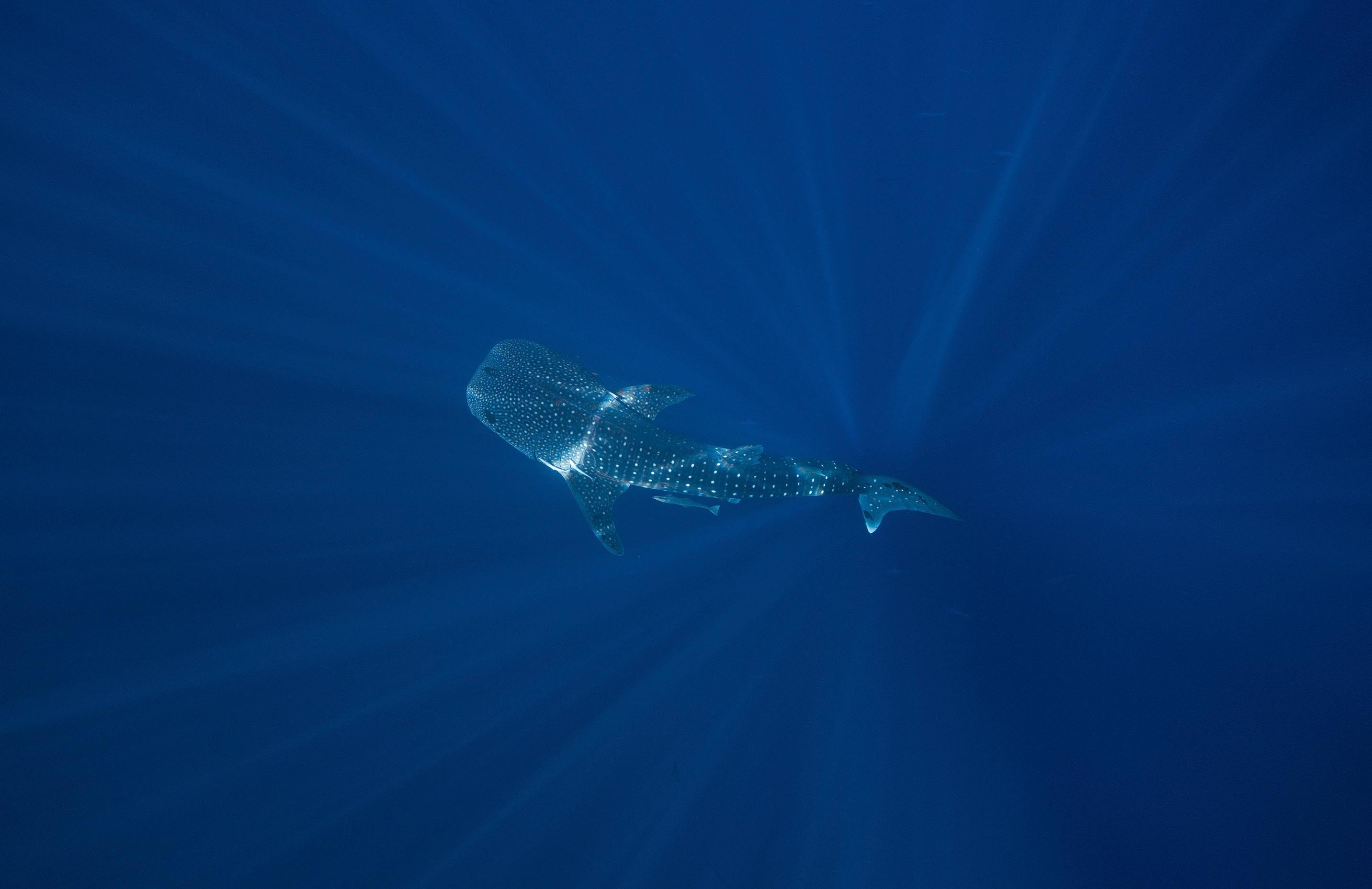
The scientific studypublished todayin Nature’s Scientific Repor ts also highlights Honda Bay in Palawan, Philippines as a globally important site for endangered whale sharks, adding further conservation importance to a country that hosts the second largest known population of whale sharks in the world (whaleshark.org). LAMAVE Project Leader Ariana Agustines said, “our results reveal Honda Bay as possibly the largest aggregation site for the endangered whale shark in the region. Through employing several data collection methods – satellite telemetry, dedicated surveys and citizen science, we report the movement within national waters as well as the first international return in Asia.”
During April – October 2018, Ariana and the team identified a total of117 individual whale sharks by comparing the unique spot pattern on a whale sharks skin; a method known as photo identification. These individuals were identified by the team during dedicated research surveys in Honda Bay, Philippines, while a fur ther 66 were identified through data mining citizen science reports – usable photos of whale sharks posted by the public on social media platforms including ©Facebook, ©Instagram and ©YouTube. Citizen science has proved to be a cost-effective method to enhance population data on species such as whale sharks, and in this case, signified the first international whale shark match between the Philippines and Indonesia using photo-ID. A 3-metre juvenile male first identified in East Kalimantan, Indonesia in December 2013 by a citizen scientist and uploaded to Wildbook for Whale Sharks, was re-sighted by the research team whilst on a survey in Honda Bay, Philippines in October 2018. Further photo-ID matches captured by LAMAVE researchers confirmed connectivity between Honda Bay and other sites in the Philippines including: Tubbataha Reefs Natural Park and Oslob, Cebu.
In addition to photo-identification, the research team deployed pop-up archival tags (PAT- tags) to understand regional movements and habitat use. These tags track whale shark movements by recording time, light and depth. Results from successful tracks further highlighted Honda Bay as a hub for whale sharks, both within the Philippines and internationally. One whale shark moved from Honda Bay Philippines, to Sabah Malaysia and back to Honda Bay within a year while another tagged shark showed a similar journey returning to Honda Bay after reaching the Malay-Filipino border. Within the Philippines, tracks showed a whale shark moving northeast of Honda Bay towards Cuyo Island, before returning via Tubbataha Reefs Natural Park.
Protecting whale sharks across their range is vital for the long-term survival of the species. Findings from this study emphasises the need for enhanced management and conservation actions to protect the whale shark through trilateral collaboration. While whale sharks have been protected in the Philippines since 1998, in Malaysia since 1999 and in Indonesia since 2013, and a general understanding that poaching is low, concerns remain regarding illegal take of these animals in the region. A report that contributed to the up-listing of the species from Vulnerable to Endangered on the IUCN Red List of Threatened Species in 2016, uncovered whale shark fisheries (or fisheries that land whale sharks) operating in the south of China where the threat that these activities are encroaching into Malay and Filipino waters was a factor in the cause for this concern.
The connectivity shown between two neighbouring countries, prompts the need for cross-boundary collaboration to manage the conservation of this endangered species and supports the objectives of the Coral Triangle Initiative, the Sulu-Sulawesi Seascape Project, and the Concerted Actions for Whale Sharks under CMS (UNEP/CMS/Concerted Action 12.07.17).
The field research was par tly suppor ted by the Rufford Foundation, Fondation Ensemble, the German Federal Ministry for the Environment, Nature Conservation and Nuclear Safety (BMU) under its International Climate Initiative, the Department of Agriculture-Bureau of Fisheries and Aquatic Resources and the Palawan Council for Sustainable Development.
The study by Gonzalo Araujo et al., titled ‘Citizen Science, Photo-ID and Telemetry, highlights a global whale shark hotspot in Palawan Philippines’ was published Open Access in the journal Scientific Repor ts today and is available here: www.nature.com/ articles/s41598-019-53718-w
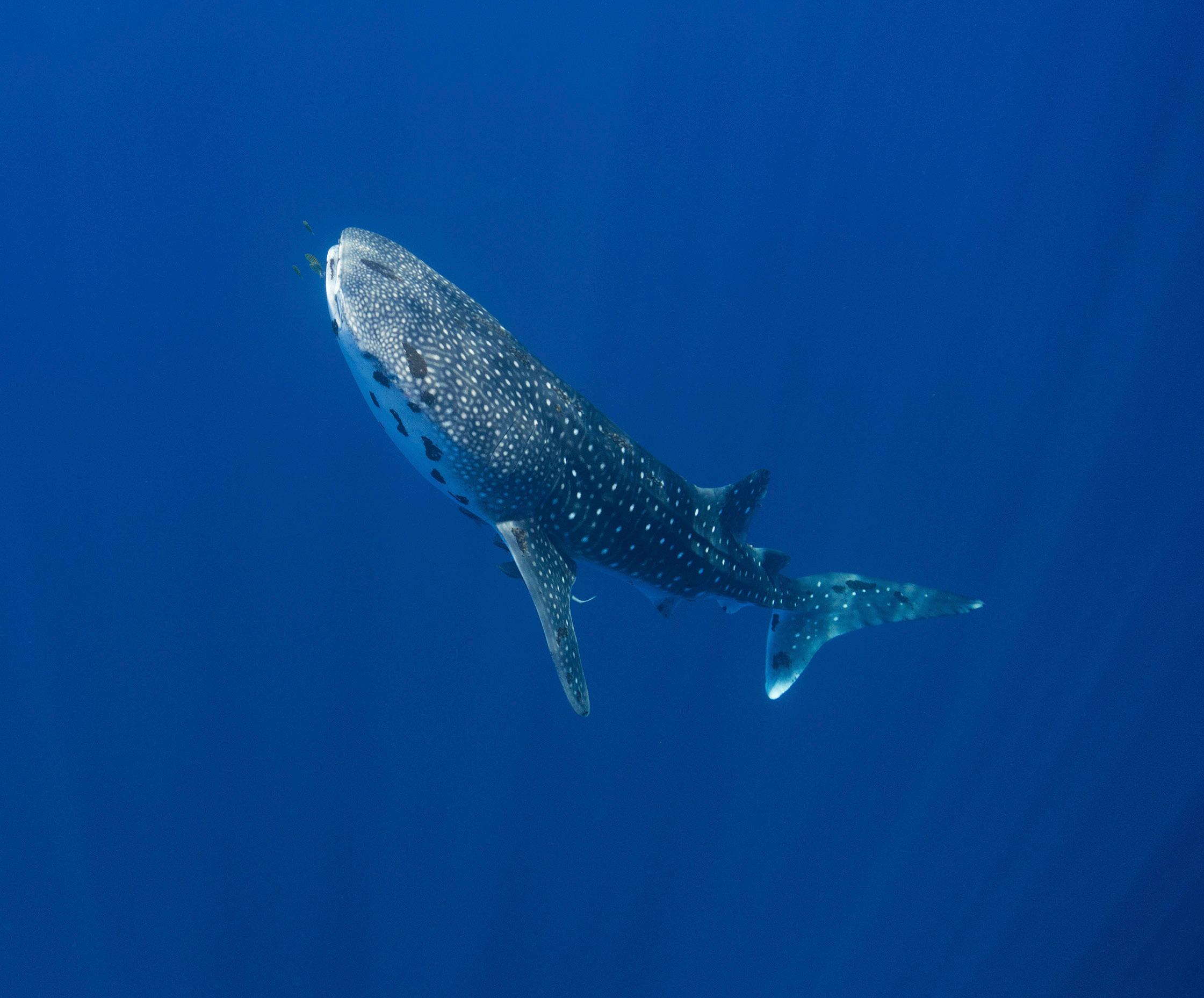
ABOUT LAMAVE
Large Marine Vertebrates Research Institute Philippines (LAMAVE) is the largest independent non- profit nongovernmental organisation dedicated to the conservation of marine megafauna and their habitats in the Philippines. LAMAVE strives for conservation through scientific research, policy and education.
FOR MORE INFORMATION VISIT: www.lamave.org Facebook.com/lamaveproject Instagram.com/lamaveproject Twitter.com/lamaveproject










